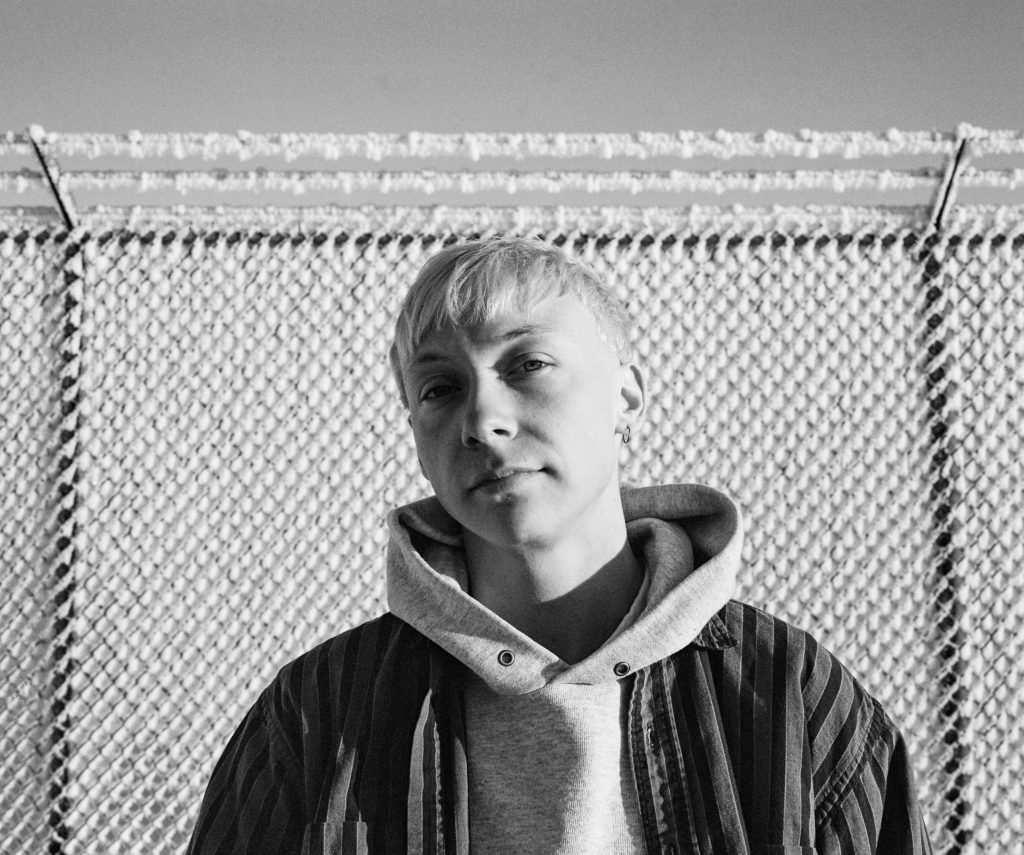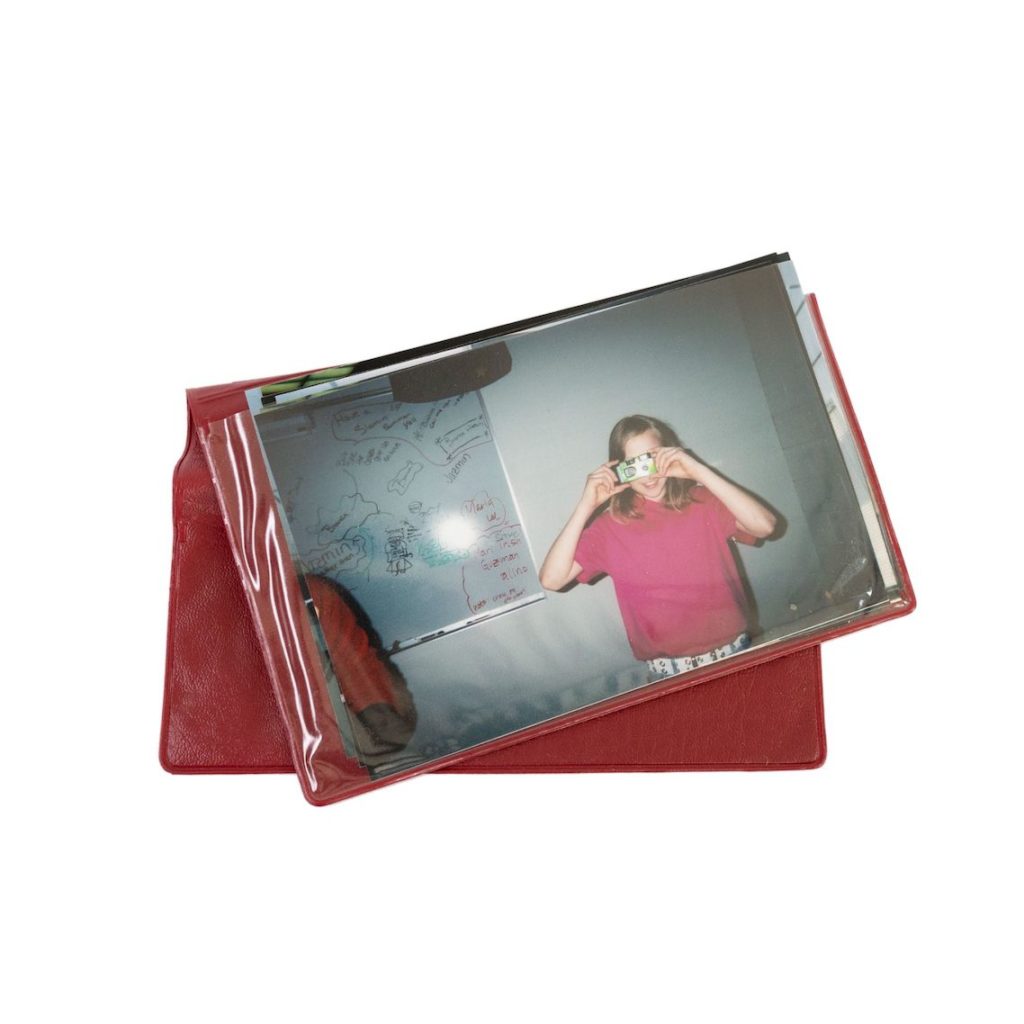Interview: Quinn Christopherson’s new music touches on nostalgia, the joy of Alaskan sun, and how “good boys” could do better

I discovered Quinn Christopherson’s sound alongside the low hum of a buzzing Doug Fir crowd. This was 2019: a “before Covid” time when drinks could be shared and fear of closeness came as just an average dose of social anxiety. My partner and I were there to see Shura, a charming pop artist from the UK whose tracks on forevher feature stories of sweet queer romance in a stick-it-to-the-church way. And while Shura did put on an absolute party of a show, it was the opening act—Quinn Chirstopherson, performing melancholic soul songs “Erase Me” and “Raedeen,” that really hit me squarely in the heart.
Admittedly, I very much fit a target audience for Christopherson’s music. I, too, was in middle school in 2005, recognizing most, if not all of the nostalgic references in recent single, “2005.” I am also trans, connecting to the feeling of being seen by the world (and once, by myself) as a woman, while absolutely not being one. But what’s truly so striking and special about Christopherson’s music is how accessible it can be to everyone. Alongside the tender guitar and electropop flair, Christopherson’s passionate cries of raw, honest and emotional lyrics hit right to the core. This is poetry in motion.
Hailing from Dena’ina Ełnena (also known as Anchorage, Alaska), Christopherson is an Indigenous artist (Ahtna Athabascan and Iñupiaq) and his love for Alaska shows up in sweet and unexpected ways: winner of the 2019 Tiny Desk, Christopherson, with bandmate Nick Carpenter on guitar, played in front of a stunning painting of Denali. He has showcased the great north in various videos, performing “Mary Alee” as a living room set on a frozen lake full of ice skaters, and again by running along a dark, icy neighborhood road in “2005.” Christopherson has a compelling knack for mixing humor and wit with thoughtful, serious, and sometimes heartbreakingly human moments, all while staying true to his own identity and self.
ELEVEN had a chance to chat with Quinn Christopherson about music, home, and inspiration as he heads back on tour.
Catch him alongside Blackbelt Eagle Scout and Thao at Wonder Ballroom, Saturday April 30th!

Photo by Emma Sheffer
ELEVEN: I actually had a chance to see you perform in Portland—I think in 2019, when you opened for Shura. That was how I discovered your music and it really stuck with me. My partner got the “Erase Me” hat and it’s my favorite hat, it’s great!
Quinn Christopherson: That’s amazing! I look back on that show really fondly.
11: The rawness of your lyrics and performance honestly really struck me. I’m curious to hear how you started playing music and what your songwriting process looks like?
QC: I feel like I started playing music out of necessity, to have somewhere to write down how I was feeling and play it. Sing it. I started out playing open mics when I was 21. I feel like I arrived late to music, you know? But I was always a writer, writing poems. [I] finally got a guitar and used that as the gateway to keep figuring out my emotions and how I felt.
11: I see that poetic quality in there. I’m also trans (non-binary) and your song “Erase Me” kind of hit hard, talking about thinking you’re a woman at a young age and the experience of being seen in that way and not really being a woman. And I also really love the song “Good Boy” as a kind of tongue-in-cheek commentary on the praise that men can get in society for doing the bare minimum. I’m curious if there’s anything in particular that fueled the concept of that song, or if it was kind of a lifetime collection of things?
QC: I mean, you paired those together and I think they go together. Obviously, “Erase Me” is about my transition. I was raised as a woman. I lived my life as a woman up until I was 25. So for me, I don’t want people to erase that part of me either. So, I wanted to make that song from that perspective and how it’s really changed now. I guess I get to see both sides. I remember sitting in the living room with my partner and we were just laughing about things that guys would do to us, back and forth, and a lot of the lines came from that.
11: That makes sense—it has this playful, sarcastic quality to it.
QC: It’s definitely sarcastic. It’s funny—it’s meant to be funny. And you know what, I’ve played it in the South and it’s not funny there!

I Am Bubblegum EP Art
11: I’ve heard you say that your “existence is political.” I wondered, when you’re touring, how do things come across differently in different places?
QC: I don’t know how people perceive me on the road. I assume if you’re coming to a show that I’m headlining, you probably know what’s up and you want to be there. But if I’m opening up for a band, I don’t know who’s going to be in the crowd. It can feel weird at times, but that’s why I write the songs that people can relate with.
I’m hoping that everybody can relate to at least one line in “2005.” You hear me on the second verse say, “I was in a father-daughter bowling league.” Well, you can maybe decipher what that means. But I also want it to feel really relatable, like I’m close to you. So that maybe these people don’t feel so far from a trans person that they think they’ve never met. I’m just going to keep singing my songs. It should be normal. It should be visible and nonchalant. I just want to drop little dimes, because that’s life. We talk about it and move on. It shouldn’t have to be a big thing you know.
11: Speaking of “2005,” I think that one also has a little bit of humor to it. When I was listening to it, I heard you say “mad cow disease” and talking about mean kids in middle school and it’s like… it’s funny, because that is how nostalgia works. You miss these things that are not always the best. I’m curious, was 2005 a good year for you, or does the nostalgia just hit hard?
QC: I had a horrible time in middle school. Not particularly at school, but in my home life. It was just a rough time. I kind of put on rose-colored glasses and wanted to write a song where I could look back on those things—kind of just cherry picking moments that made me feel good.
Of course, at the time, my dad was going through my things and reading my notes. I hated it. But I look back, like, “Wow, he really cared about me, he was really concerned.” And it’s like, yeah I want to go back to that.

“2005” Single Art
11: Is that you on the cover of “2005”?
QC: Yes! That is me—I think on the last day of 7th grade. I love it, because you can see on the white board, kids in class signed, “Have a slammin’ summer.” It’s hilarious.
11: How does it feel now to be back on the road and touring?
QC: It feels good. I am a performer, I love to perform. I love to sing live—it really fuels me, and it inspires me so much to see other musicians play live. That is definitely something I was missing out on. I went to SXSW, so I guess that was my first time back in the mix. I got to see so many bands and it was inspiring. Playing the couple sets we did, it felt so good. Felt like a good time for art.
11: I was thinking about what you said in the song “Loaded Gun,” about Alaska needing some sun—I’m looking out the window right now in Portland and it is very drab and rainy still. I’m hoping you do get to catch some sun on this tour! Have you, yet?
QC: Yes, we need so much sun here in Alaska! The winters, they get dark. That’s the worst part of it, for me. I love snow, I love the cold, I like the ice skating and everything. But the darkness is so hard to get through.
Right now, the sun is back. The snow’s almost melted in my backyard and I definitely got my bike out yesterday. I can feel it in everybody—all my friends, everyone hitting you up. Things are kind of moving and shaking. I know Portland’s kind of dreary too. I got some sun in Austin at South By. I like to be in the sun, but I also can’t be in heat too much. I think 80 is too hot.
11: Yeah, I’m with you there. You have sun all the time in the summer and then it goes away and there’s no sun in the winter—does the fluctuation in Alaska mess with you creatively?
QC: Yeah, that’s the exaggerated version. In the winter, I’d say January, the sun will come up around 11[am] and go back down around 4[pm]. So we have a little bit, but it’s so short and it makes your days feel really short. Definitely gets into seasonal depression. But then on the other hand, in summertime, it really feels like the sun never goes. You walk out of somewhere at 2am and everyone can see how disheveled you look. There’s no nighttime to hide behind. Then you’re barbecuing at 11pm and it just feels normal. It feels like Alaskans, we kind of go in and out of a hibernation of sorts—and go crazy in the summer.
11: Do you have a time of year where you’re more creative and writing songs?
QC: I never look at creativity and “product.” I don’t have a gauge of when I’m producing more things because I don’t care about product. It’s a different style. I find different arts and crafts to do in the winter, because I’m inside more. I feel like I actually make all sorts of stuff in the winter, and then in the summer I’m out and about, getting out biking and roller-blading, all that stuff. I feel like that’s a good time to listen, get ideas and concepts, and be around people that inspire you. Then, come winter, take all that and dissect it, go through it and write it.
11: What music do you listen to for inspiration? Do you have any particular artist or genres of music you’re really inspired by right now?
QC: I’m inspired by so many things. I love TV. I love movies. And I love feelings and emotions, seeing those through media—storytellers, books. Really, I’m interested in what my friends are inspired by. I kind of just like everything. When we were in Texas, it was all about country—going through a deep education of country singers and songwriters. I was so inspired by that for a few weeks. My friend is from the south and so he was kind of educating me on that side and I thought it was fun. And come back home, I’m digging into stuff my mom sang karaoke to. I just pull from anywhere!







